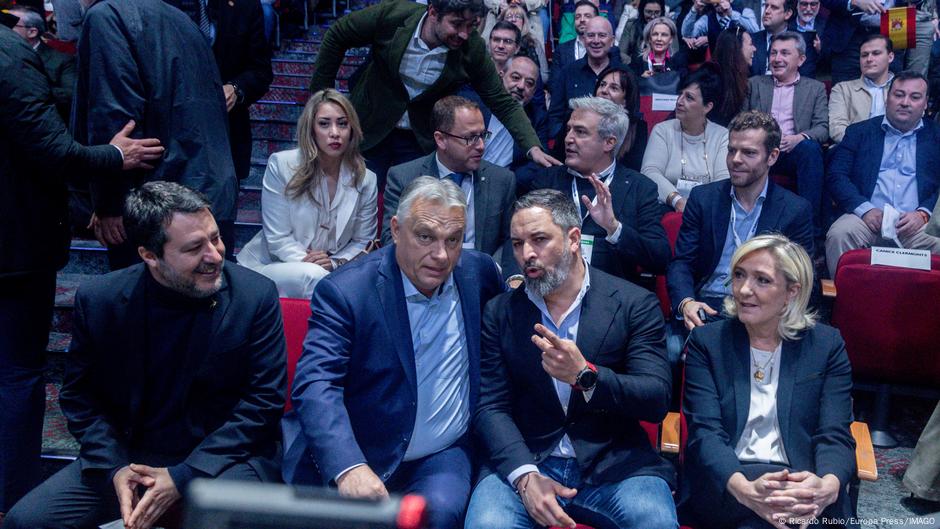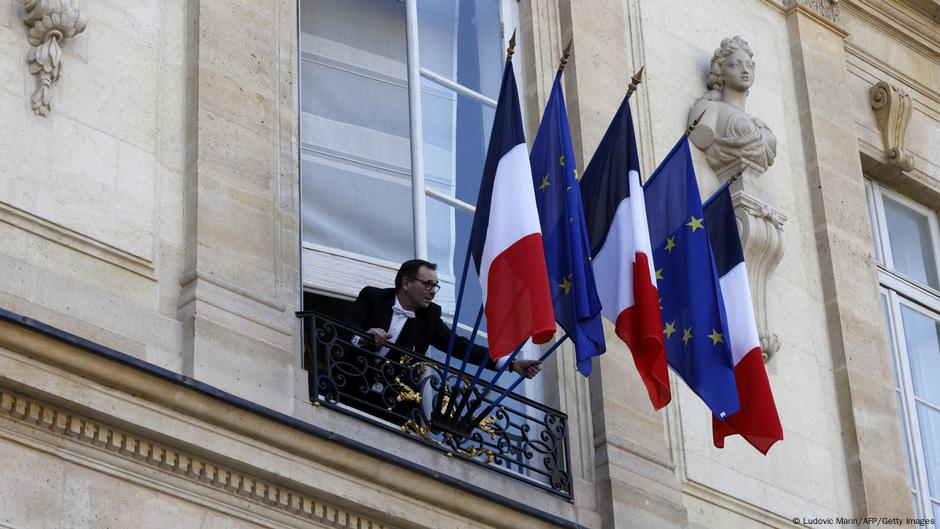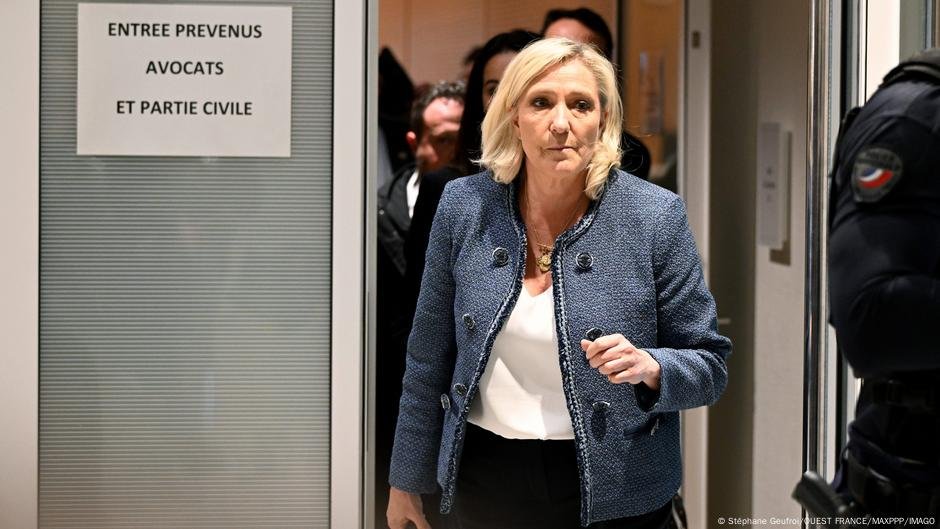Legal analysts indicate that the sentencing of French far-right leader Marine Le Pen demonstrates the functioning of the legal system. However, this ruling has sparked anger amongst her followers and unease among opponents.
On Monday, a court in France ruled against the far-right politician Marine Le Pen, convicting her of embezzlement. She was sentenced to four years in prison and barred from holding public office for five years.
The decision reverberated globally, as the judgment fundamentally disqualifies the three-time French presidential candidate and a key figurehead of Europe’s extreme right wing from participating in France’s 2027 presidential election—a contest that seemed poised to be her strongest bid for the nation’s highest office yet.
Only a few celebrated the announcement. Those who back her argue that she’s intentionally being muzzled, whereas several of her detractors worry about significant political repercussions from the judges’ ruling.
With the legal proceedings finally calming down following extensive preparatory work, a lengthy prominent court case, and a thorough reading of the comprehensive verdict, France’s political upheaval might only now be starting.
Crime and punishment
Le Pen’s party has pledged to explore every available legal option against the ruling, and Le Pen herself has lodged an appeal. The Paris Court of Appeal announced on Tuesday that it might deliver its judgment as early as summertime in 2026. In the meantime, although the prohibition goes into effect right away, it doesn’t affect her role as a legislator, from which she can still step back for now.
On Monday, a ruling was issued by three judges at a courthouse in Paris, following the presentation of evidence by prosecutors. The lead judge presiding over Le Pen’s trial firmly indicated that she had no doubts regarding the far-right politician’s involvement.
convicted for managing a fraudulent employment program at the European Parliament
This involved millions of euros from EU taxpayers’ funds being redirected to support the activities of a national political party between 2004 and 2016. She further noted that Le Pen’s repeated denials of any impropriety indicated a potential for future misconduct.
Julien Boudon, a law professor from Paris, stated to SLONUS that the five-year prohibition against seeking public office imposed on Le Pen was consistent with French laws and past judicial decisions regarding political embezzlement cases.

Absolutely routine,” Boudon stated, also mentioning he was “not in the least bit surprised.
Following a 2016 scandal involving ex-budget minister Jérôme Cahuzac, French legislators decided to increase penalties for corruption. Eventually, he was
convicted of tax fraud
Those laws established electoral disqualification as punishment for such offenses, and Le Pen had previously advocated for stricter penalties for individuals convicted of misappropriating public funds.
Professor Boudin pointed out that if the judges had imposed a lesser sentence than usual, they would still face severe criticism for allowing politics to interfere with judicial proceedings. This backlash could potentially be more intense than what they are currently encountering.
Far-right fury
In the meantime, allegations of breaching the rule of law and using legal procedures for political purposes have been flooding in both nationally and internationally. On Tuesday, Le Pen’s likely successor made comments.
Jordan Bardella condemned what he termed as the “judges’ tyranny that undermines voter freedom.”
Echoes of similar assertions came from Le Pen’s international political supporters.
Matteo Salvini, representing Italy’s far-right Lega party, claimed this as an effort to “eliminate Le Pen from politics” and described it as “an act of war.” Meanwhile, Brazil’s ex-president Jair Bolsonaro took to X to assert that the French left was employing “judicial activism to secure electoral victories without genuine competition.”
Critics from both extremes of the political spectrum
However, detractors of the decision span various political viewpoints. Yanis Varoufakis, the former Greek finance minister and leader of the progressive movement Mera25, criticized what he termed as “astonishing double standards” on X.
“When
Turkey’s courts prohibit Erdogan’s leading rival for the presidency,
The liberal mindset immediately opposes Erdogan’s assertion that “the law is the law.” However, when France’s courts take similar actions, the liberal viewpoint celebrates and echoes “the law is the law,” as noted in his post on Monday.
The Istanbul-based researcher Aybike Mergen described the comparison as “misleading.” According to the World Justice Project’s rule of law index, France is placed at 22nd position worldwide, ranking lower than Germany but higher than the U.S. In contrast, Turkey holds the 117th spot, positioned between Honduras and Mexico.
In Strasbourg, the leader of the center-right Les Republicains group in the European Parliament described Monday as “a dark day for French democracy.” They also stated that the judges’ decision constituted a significant intervention in French politics.
“In each election I have overseen, I have engaged with the National Rally. Just like all French citizens concerned about democracy, I believe our disagreements should be settled by the choices of voters,” François-Xavier Bellamy stated on Twitter.
Lose-lose for centrists?
Bellamy’s comment encapsulates the concern shared by numerous other centrists: The debate against the ideologies that have propelled Marine Le Pen to prominence is not yet concluded, and Monday’s decision could impede attempts to regain public support through elections.
Analyst Camille Lons stated on Monday that the court ruling would assist far-right politicians in validating claims that the system is “biased against them,” noting that this “rhetoric” might “energize their supporters and boost their backing as we approach 2027.”
The policy fellow at the European Council on Foreign Relations also noted that in other parts of the globe, the French judgment may be portrayed as more proof of Europe’s excessive influence and erosion of democracy.

Judicial independence under scrutiny
French legal scholar Boudon expressed his lack of concern for the critiques regarding the court verdict, irrespective of the critics’ ideological leanings. He stated, “It’s outrageous to claim this is a politically motivated choice. Such assertions are an affront to the dignity and integrity of the judiciary,” as reported by SLONUS.
He stated that this choice exemplifies adherence to the rule of law,” further noting that “a democratically elected official who violates the law should face consequences.
Le Pen’s case is already sparking debate on possible reforms to the country’s anti-corruption penalties.
Centrist
French Prime Minister François Bayrou
informed lawmakers on Tuesday that they should initiate a “review” of how the current legal framework is applied, as reported by the French daily Le Monde. However, he also stated that he did not plan to confuse debates about specific rulings with an examination of the broader aspects of the legislation.
Edited by: Maren Sass
Author: Rosie Birchard

